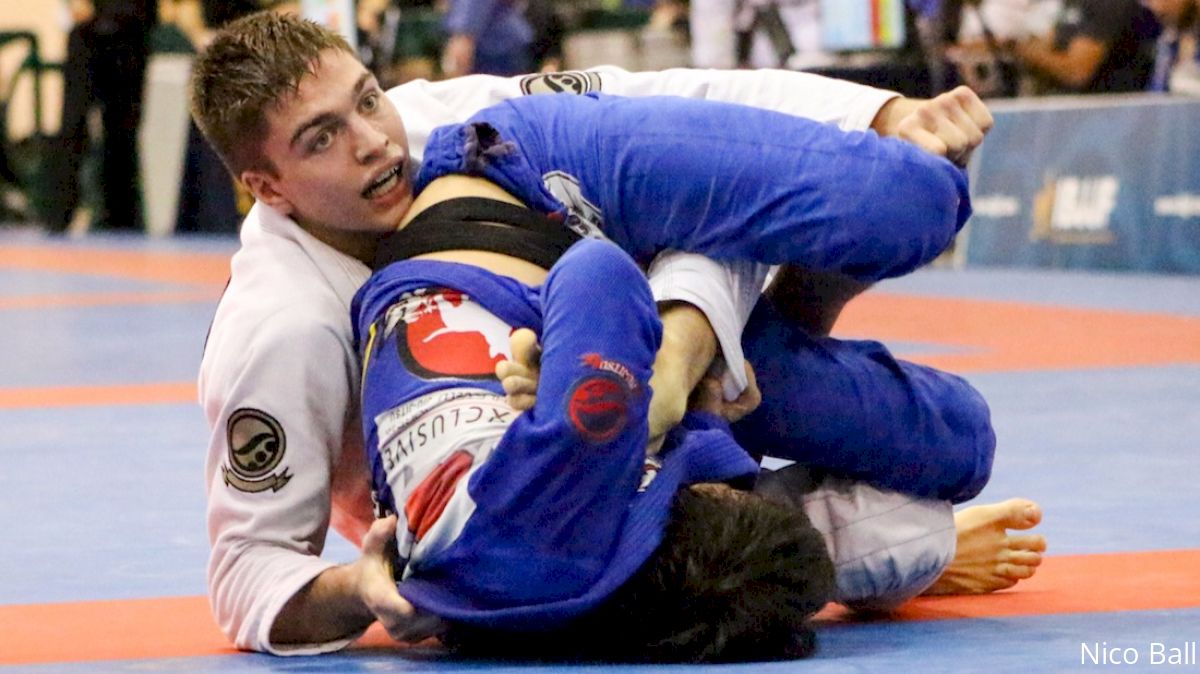Money Matters, But Why Don't People Compete In Events With Cash Prizes?
Money Matters, But Why Don't People Compete In Events With Cash Prizes?
It seems like a good time to talk about one of the more confusing trends in the competition scene.

Written by Gianni Grippo
The next wave of major competitions is approaching, including the highly anticipated IBJJF Heavyweight Grand Prix. It seems like a good time to talk about one of the more confusing trends in the competition scene:
Why are there commonly less competitors entered into money prize tournaments?
For years, it was a hot topic to bash on the jiu-jitsu lifestyle, amateur tournaments, and how it was very hard to make money out of it. In the early years, there were hardly any professional events or tournaments that offered cash prizes. So if you didn't have a school or were teaching seminars every weekend, it was unrealistic to assume that one could survive just on competing in jiu-jitsu.
For a good while, this was leading some of the greatest black belt competitors of all time away from jiu-jitsu competition and into the more profitable MMA circuit, including guys such as Ronaldo Jacare, Vitor Shaolin, Roger Gracie, Demian Maia, and -- even for a short time -- Marcelo Garcia and Andre Galvao.
While some of the switches could've been made due to the need for a new challenge, there was also no question that jiu-jitsu simply wasn't a sustainable way to make a living -- especially if you aspired to just be a competitor.
But today, the demands for cash prize events have been answered.

Gianni Grippo celebrates his second straight Abu Dhabi World Pro title in April. Photo: Chase Smith / FloGrappling
Professional jiu-jitsu events such as Five Grappling, Fight to Win, and many others are helping take jiu-jitsu mainstream while paying the competitors (i.e. some just pay the winners.)
Even the IBJJF has numerous "Pro" tournaments offering good money in the U.S. and Brazil, while the UAEJJF continues to have its Grand Slam tournaments around the world, which also offer cash prizes to all medalists.
But even with all of these tournaments, I've noticed the common trend that the money tournaments draw fewer competitors than many events that offer nothing at all.
At the IBJJF New York or Boston Open events, I'll usually have three fights in the feather or lightweight class. But in the last two years at the NY BJJ Pro I've only had two matches, and there has never been more than six people in my bracket.
Keep in mind that at the IBJJF BJJ Pros they combine some weight classes, grouping rooster, light-feather, and featherweights together.

Otavio Sousa in action at the New York BJJ Pro, a tournament he has dominated for three years.
To me, this is mind-boggling. There are real opportunities to actually make money while competing, but some people aren't taking advantage. Here are just a few reasons why this may be a common trend:
1. There are too many tournaments
A lot of people will compete regularly right up until Worlds and then go into offseason mode, citing the need for a physical and/or mental break. And unfortunately, that's usually when the cash prize tournaments roll around.
2. The money isn't enough
Although for me it's difficult to turn down the opportunity to earn a couple thousand dollars, perhaps others who have other priorities in life do not find the money as enough of an incentive to put the extra effort into training and to go out and compete. While you'll probably find many of the full-time athletes as the first to sign up, perhaps those with other jobs or responsibilities won't be so quick to jump on the opportunity.
3. A lack of confidence
When a tournament that involves money arises, it is almost a safe bet that you'll see numerous high-level names, especially at the higher belts, make an appearance. Guys such as Otavio Sousa, Leandro Lo, Keenan Cornelius, and others are just a few to come from far distances for past IBJJF BJJ Pro competitions. Knowing that, perhaps some don't like their chances and opt to sit it out rather than giving it a shot. An intimidation factor could be the case here -- the higher the stakes, the bigger the names -- and therefore those with the lesser names may not feel as strongly about their chances at claiming the cash prize.
It's hard to read into why each individual would decide to not compete at an event with a cash prize at stake. There could be a different reasoning for everyone.
Why do you, the reader, feel like we see smaller turnouts for higher-stake money tournaments?
Read more from Gianni Grippo
• Avoiding Flaws In Adapting From Gi To No-Gi
• Be Thankful For Your Rivals, They Make You Better At Jiu-Jitsu
• Lessons On Competing From Leandro Lo And Marcelo Garcia
• Even Black Belts Struggle With Overcoming Competition Anxiety
• How Can The USA Become #1 Jiu-Jitsu Power In The World?
• Training For 2017 Worlds At Marcelo Garcia's Gym